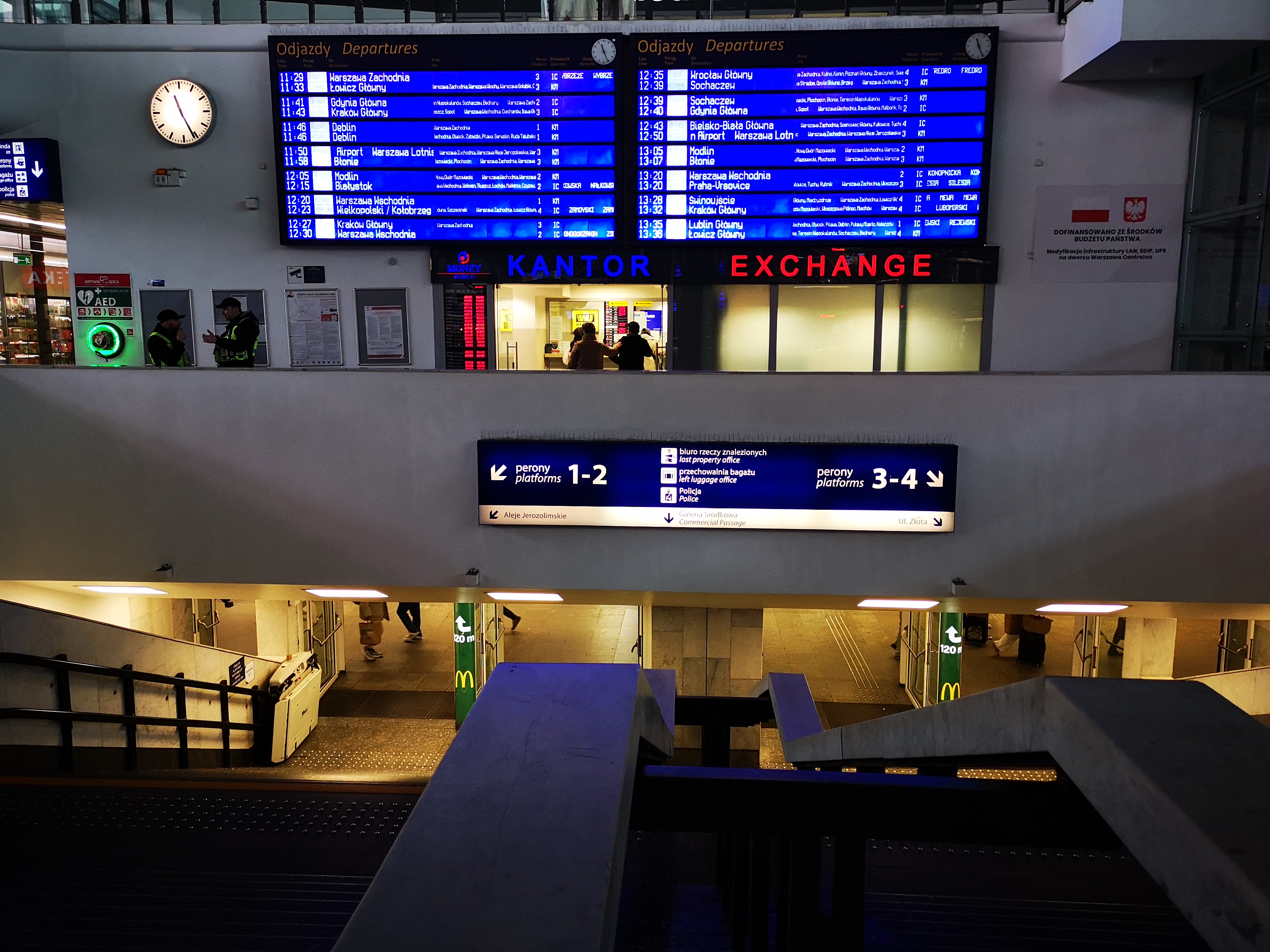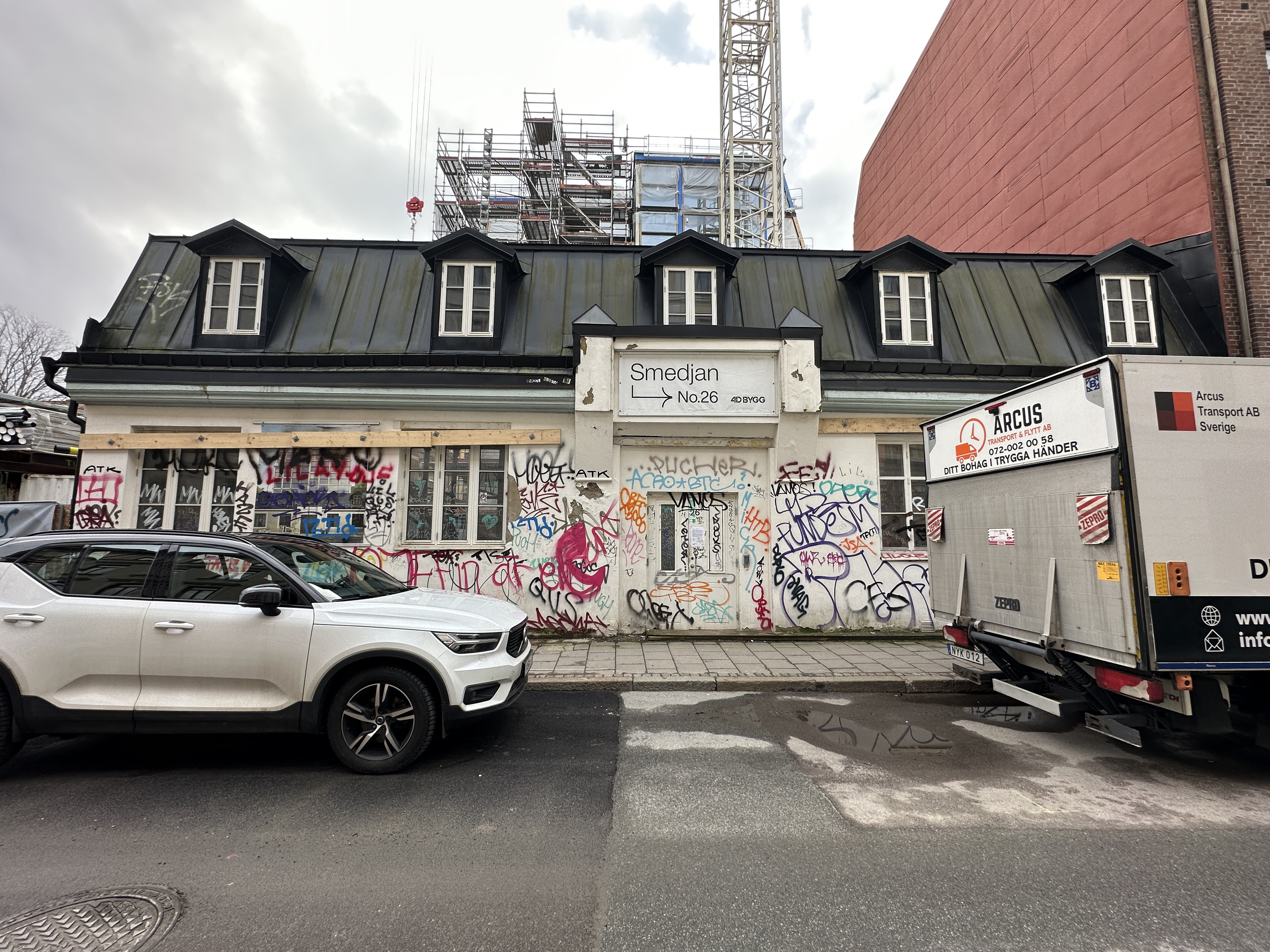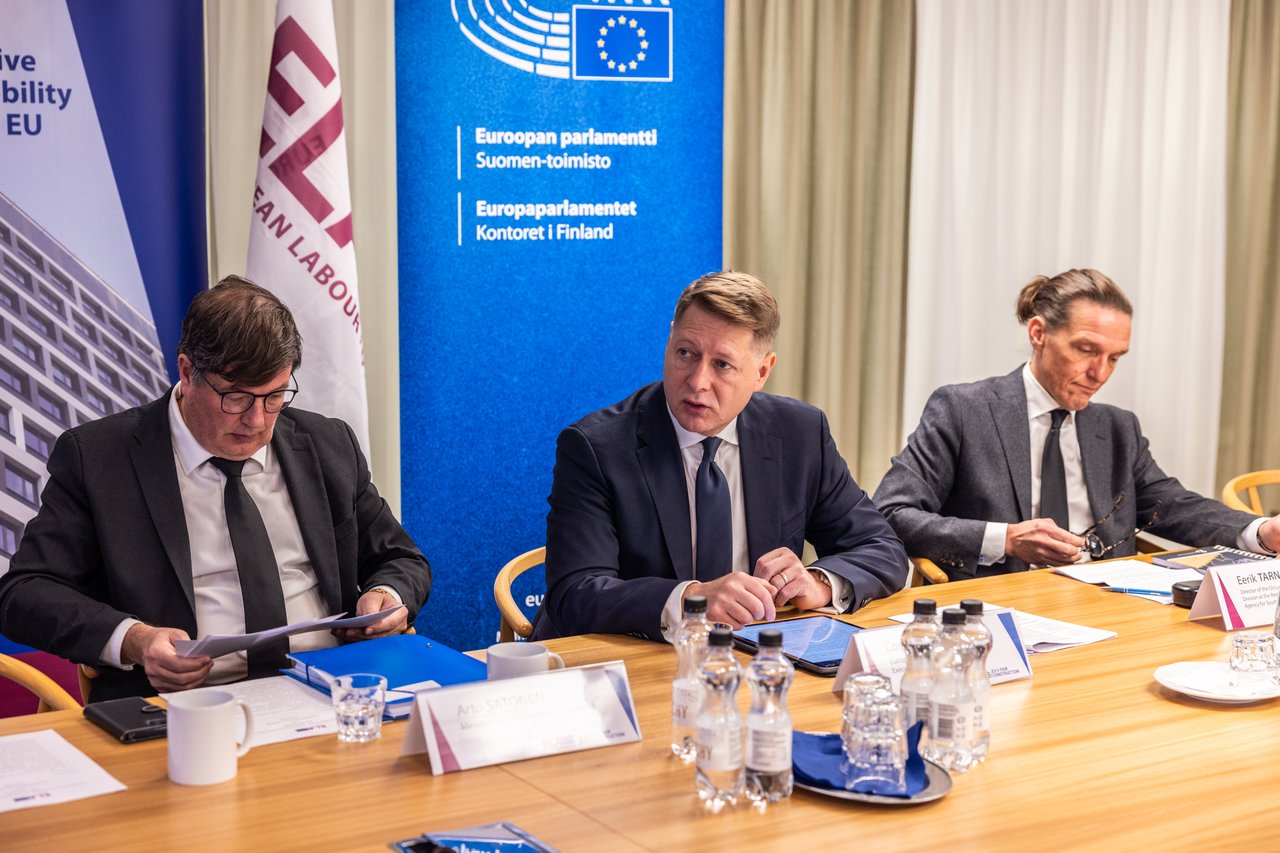Investigation
Coming clean? EU cleaning industry exploitation exposed
As morning dawned over Munich, German customs authorities embarked on a covert mission to investigate suspected illegal migrant labour at a local hotel. Asked what their purpose is, they answer they are aiming to uncover companies that exploit undocumented migrants as employees.
“At night, in the darkness and especially in hotels this provides perfect conditions for deception,” one of the customs officers says.
Upon arrival, his team finds irregularities in the Georgian and Turkmenian cleaners’ paperwork, including forged residence permits. The raid uncovered outsourcing of cleaning services to a company that originally recruited migrants from outside the EU, sending them as posted workers into the Union with the help of sub-companies, prompting legal action.
Similar patterns have been detected in other cities where this hotel chain operates, with cleaners often working discreetly during guest off-hours. After searching apartments and conducting interviews, the German authorities withhold the passports and usually give cleaners 48 hours to leave the country, all while investigating further the illegal recruitment that brought these people here.
This is not an isolated case in the EU these days.
The EU’s undocumented cleaners
Eurostat reports around 3.5 million documented cleaners in the EU, though their work often goes unnoticed. But additionally, there are undocumented cleaners, mainly non-EU migrants, whose contributions are significant but not captured in official statistics due to their status.
Their stories and challenges remain hidden, underscoring the deep-seated complexities and disparities within the cleaning sector, which official data fails to fully capture.
This investigation into the recruitment of non-EU migrant cleaners in Europe reveals the exploitation of individuals from Ukraine, Russia, Moldova, and Georgia in wealthier EU nations like Sweden and Germany.
This scheme, where Poland is used as a gateway to EU countries and highlighted by the recent raid in Munich, involves subcontracted contracts, forged work permits, and false promises, enabling recruiters and employers to profit from non-EU migrants seeking jobs, through advertising on Facebook and Telegram groups, while prosecutors are often one step behind.
This investigation also found a pattern of undocumented cleaners from outside of the EU receiving forged documents from recruiters to pose as EU citizens while working. Moldovans and Georgians pose as Bulgarian or Romanian, while people from Turkey will receive forged documents from Cyprus.

Seeking employment in Europe
People from all corners of the globe are drawn to opportunities in Europe, including the cleaning industry. In Belgium, cleaners often hail from as far away as the Philippines to Africa — particularly Congo.
In Sweden, Thomas Ahlstrand, a retired prosecutor and delegate at the Council Of Europe Group of Experts on Actions against Trafficking (GRETA), observes that within the cleaning sector in Sweden, women predominantly from eastern Europe are common.
In the UK, English-speaking Africans and individuals from the West Indies are prominent. In France, many cleaners come from French-speaking African countries, leveraging historical colonial ties and shared languages.
“It’s easier for a person from Sierra Leone to find her way in Great Britain. And it’s easier for a person from Senegal to find her way in France”, Ahlstrand says.
Wherever they come from, or end up, these people have one thing in common. They tend to be exploited by their employers.
Swedish police coordinator Helena Lantz, who specialises in labour crimes, notes that these migrants are often assigned dangerous cleaning duties, while Swedish cleaning industry expert Gesa Markusson highlights a discriminatory pay scale, in which undocumented workers earn less than their Swedish counterparts.
A pattern: long shifts and no breaks
A Ukrainian, who for risk of repercussions will be named "Alexander" in this article, arrived in Gothenburg, Sweden, as a war refugee intending to stay with his daughter and her Swedish husband. However, feeling like a burden he sought work and ended up in the cleaning industry as an undocumented worker.
At a Gothenburg-based cleaning company, Alexander experienced exploitation. He found himself in an unjust environment, where the company’s director manipulated his situation, taking advantage of his need for employment.
Alexander was subjected to long working hours from early morning until late afternoon, including unpaid Sunday shifts. “The Swedes had lots of breaks, 'fika' and tea breaks,” Alexander tells EUobserver. “We worked like slaves”.
Moreover, the director changed Alexander’s contract abruptly, seemingly to replace him after a year of service, using a loophole in employment terms. He was even coerced into providing free transportation services without compensation, Alexander claims.
Asked about such practice, the company stated it complied with legislation “as well as collective agreements with all employees”, but did not further comment when confronted with the specific allegations. Instead, a company representative alleged an aim of “damaging our company’s reputation” and even suggested former employees would be criminals, without giving further proof or details.
Victim of exploitation
In 2022, a scandal in Sweden revealed how Ukrainians and other non-EU migrants were being criminally exploited by the cleaning industry after being recruited by Polish agencies.
In the 900-page internal Swedish police investigation containing witness testimonies, screenshots and invoices, a Russian woman, who in this article will be called "Sasha", testifies that she sought work abroad due to low wages in Russia which made it hard for her to support her child and disabled mother.
Through friends and Facebook ads, she connected with a Polish recruiter in Lublin who offered her a job in Sweden. Despite signing a contract in Polish, which she couldn’t read, she was assured of its legality because they informed her that she had an “A1” document.
On their website ZUS, the Polish Social Insurance Institution, explains that the A1 certificate enables an employee, contractor or business owner to be covered by the Polish social security system and send workers abroad to other EU countries. Regardless of the duration of work abroad, the employee needs to have an A1 or can be faced with legal issues during inspection abroad. For example, if the employer does not apply for A1 in Poland and travels to work in Germany, the employer should report this employee to the social security system in Germany instead.
According to her testimonies in the police files, Sasha lived in a shared accommodation in Sweden under surveillance by her Swedish employer. “In the accommodation, there were cameras that recorded everything that we did, everything that happened, and everything that we talked about.”
Within days, she began working, aiming to work between 180-200 hours monthly to earn enough. Her tasks included cleaning offices, homes, and gyms from early morning until late evening, earning seven euros per hour — with payment delayed until after two months, according to the contract. However, she did not receive the salary in total.

After three weeks, the owner of the first company who had hired the subcontracting company alerted them to their illegal employment status. “We got threats from our Polish employer and the Swedish subcontractor, that if we went to the police we wouldn’t receive our salaries”.
Sasha and 10 others sought help from the Swedish Migration Agency, leading to a court case involving suspected exploitation. The court later sentenced the company owner for breaking the Aliens Act, however, he not found guilty of charges of exploitation, and thus was merely required to pay fines.
These job offers, like the one Sasha worked under, exploit the 'A1 construction' loophole, allowing non-EU migrants employed by Polish agencies to work in Sweden without local social security contributions, making them attractive hires for cost-conscious employers and exposing individuals to organised exploitation.
A disadvantage to the cleaners coming from outside of the EU is that they lack an understanding of the official languages, and usually it’s only the recruiters that can communicate with them. This shared language makes the workers trust the recruiters even more, Helena Lantz confirms, making it easier for recruiters to exploit them.
Investigating crossborder work
It took nearly 30 years after its establishment in 1993 for the EU to establish its own institution to monitor mobile work, the European Labour Authority (ELA) which was founded in 2019.
ELA’s mission is to detect cross-border violations of labour laws. “As a member state, it is not enough to inspect your own territory. You need to also cooperate with other member states to cross-check for violations of labour mobility rules with them,” ELA's executive director Cosmin Boiangiu tells EUobserver.
That’s why ELA has initiated collaborations with police and customs authorities across the 27 EU member states and with Europol. In 2023, the institution conducted 76 joint inspections — a relatively new endeavour, as Boiangiu admits. “But that’s what we want: less talk, more action”.
Boiangiu hopes for increased engagement from member states in reporting labour market issues. So far, ELA investigated precarious conditions in the road transportation and construction sector, as well as in agriculture and seasonal work.
In the next year, the cleaning industry, among others, will specifically be investigated, director Boiangiu confirms. ELA already has received indications about precarious working conditions in further EU countries, such as Ireland. “We will continue to concentrate on sectors with the objective to limit the occurrence of abusive practices like undeclared work,” he says.
At ELA, they understand the challenges associated with inspecting the European cleaning industry which in some countries is categorised as a high-risk sector for black market work. The complexity in control arises from the multitude of small businesses involved, with people constantly moving from one location to another, as usually seen in subcontracting. “We are aware that misuse of subcontracting is a big problem and that’s why the topic is high on our agenda,” Boiangiu emphasises.
Ironically, it is EU institutions themselves which currently hold half a dozen cleaning contracts worth more than €211m using opaque chains of companies, outsourcing or subcontracting since 2020, including the European Parliament, Council and Commission. This is revealed by internal documents released under the EU’s Freedom of Information process for this research.
An investigation by Germany's Zeit Online and the French investigative portal Mediapart shows that migrant cleaners in the European Parliament testify to facing exploitation and poor working conditions despite the EU's promises of fair work. Outsourcing to companies often leads to systemic abuses, with workers reporting harassment, overwork, and inadequate protection, particularly exacerbated during the Covid-19 pandemic.
“If journalists try to interview you, refuse and give us the information,” supervisors wrote in messages to cleaners hired by one of the two companies which currently clean the EU Parliament in Brussels.
Reform is on its way
All EU countries require better monitoring of mobile work, the ELA states. “We have the rules in place; now, we need to do a better job of enforcing them,” the director asserts, recognising that ELA’s effectiveness also hinges on voluntary participation from EU members.
So far, supranational law as expressed in the Posted Workers Directive is still bypassed. The question persists: Can ELA truly effect change?
Cosmin Boiangiu explains, “One of the most vulnerable category of workers in Europe right now are third-country nationals. More and more European citizens know about their rights and therefore are more difficult to exploit.”
Workers from former Soviet countries, for instance, know less about their rights, he confirms. But, for investigations into such third-nation workers, ELA’s current mandate is not applicable and all too limited.
Critics and lawmakers in Brussels agree that there needs to be a stronger mandate: for this, there has already been a resolution in the European Parliament and it is now in the hands of the commission to take a reform further, a process which will at least last several months.
“For now, we are doing the best with what we have,” the ELA director says.

To monitor work conditions in the EU, the agency currently has an annual budget of €50m. To Boiangiu, the question of financing is central, but it does not stop there. “Every year we grow, and we will come to a point where we may need more human resources to effectively fulfil our mission.”
At this point, the institution monitors 15 million mobile workers in the EU – with limited capacity, director Boiangiu has to admit. “The ELA has 144 employees,” he points out.
This investigation is part of “Crossborder Journalism Campus,” an Erasmus+ project of the University of Gothenburg, Leipzig University and Centre de Formation des Journalistes in Paris. The three journalism schools have collaborated to highlight critical aspects of labour and migration in the wake of the European elections in June 2024. Under the question “Who Cleans Europe?”, this team focused on complex company chains in the cleaning industry and especially the misuse of subcontracting as a vehicle of human exploitation.
Reporting was contributed by Fannie Axelsson, Wiktoria Gruca, Aylin Ho, Esmee Lam, Laure-Anne Marxuach, Leon Meckler, Dariush Movahedian Moghadam, Charis Mündlein, Justus Niebling, Loïc Pradier, Méline Pulliat, Christian Schweppe, Guokai Sun and Daniel Ågren.
The production of this investigation is supported by a grant from the IJ4EU fund. The International Press Institute (IPI), the European Journalism Centre (EJC) and any other partners in the IJ4EU fund are not responsible for the content published and any use made out of it.
Author Bio
Fannie Axelsson, Wiktoria Gruca, Esmee Lam, Laure-Anne Marxuach, Christian Schweppe and Guokai Sun are exposing the covert recruitment networks enabling the exploitation of migrant workers in the cleaning industry across Europe, bringing visibility to cleaners who remain unseen.